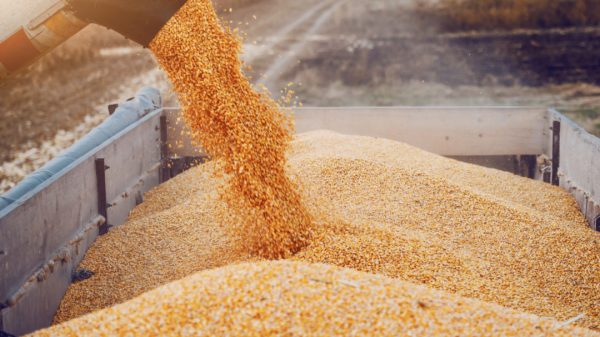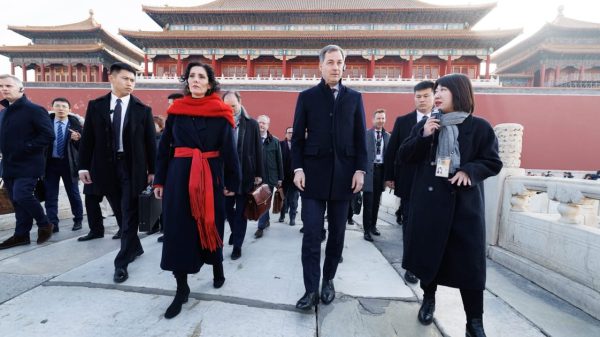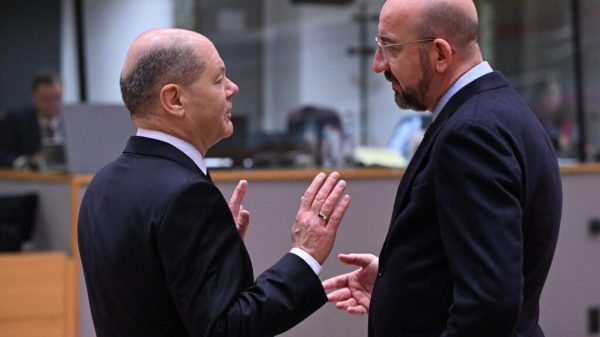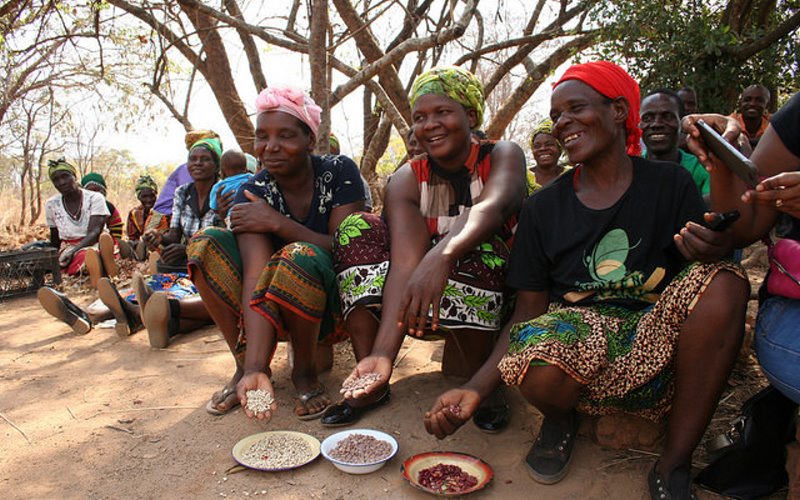Towards a second Green Revolution, Tingo, Inc. is providing the technology to make farmers heroes.
The world’s food systems have been put under enormous pressure in the last three years, with rising numbers of people suffering from chronic malnutrition and severe food insecurity. Existing food issues globally have worsened as a result of Russia’s invasion of Ukraine, exacerbating an already dire situation following the outbreak of the pandemic. – writes Dozy Mmobuosi, Founder and CEO, Tingo, Inc.
Towards a second Green Revolution, Tingo, Inc. is providing the technology to make farmers heroes.
AdvertisementNowhere can the issue of food insecurity be seen more clearly than in the continent of Africa, where the most vulnerable will be bearing the brunt of global crises. There are no easy fixes to the issues inherent in the global food system: the system itself needs to be transformed. This change can only start with a power shift, a widening of access to the latest science and technology. A chain is only as strong as its weakest link.
The ever-growing array of innovative technologies available to farmers around the world has been awe-inspiring, but this technology seldom reaches those who need it the most. Tingo, Inc. holds as one of its primary missions to usher in a second Green Revolution, which will take root in Africa. We believe that the latest scientific and technological developments should be made accessible to all farmers across the continent, empowering them to become heroes of their own stories.
Considering that only 8% of rural residents in West Africa have access to electricity, Tingo, Inc. aims to provide small and medium-scale solar panels to enable farmers to develop sophisticated irrigation systems, allowing them to increase food production and reduce post-harvest losses. This technique, known as agrivoltaics, would not only allow for sustainable and affordable energy generation but also boost growth by providing shade to crops and retaining moisture in the soil.
Democratising access to the latest science and technologies for all across Africa lies at the heart of everything we do at my company, Tingo Inc. I truly believe this is the solution to global food insecurity, and that it holds the potential to transform the continent.
The Green Revolution in the 1950s and 60s, led by Norman Borlaug, revealed the scale to which the implementation of the latest technologies and scientific methods can transform agricultural production. Borlaug has been credited with preventing starvation for over 1 billion people, reducing poverty on a wide scale, and contributing to declines in infant mortality. This sea change, however, never reached Africa.
Today, farmers throughout the world produce enough food to feed around ten billion people. However, due to a variety of factors, only a portion of that food makes it from crop to plate: one out of nine people on the planet go to bed hungry most nights. One of these factors is the asymmetric access to knowledge and technology that low- and middle-income countries face compared to wealthier nations.
One innovation that can help reset this power imbalance is digital technology. Digital technologies, such as mobile phones and the Internet, which gather, store, analyse, and exchange information digitally, represent more accessible solutions for farmers. They enable greater collaboration and make information, technology, and expertise, as well as access to new markets, available to more people than ever before.
Food security experts all agree that digital technologies have the potential to transform entire food supply networks, improving the quality and scale of food production, as well as widening global access to food. Former UN Secretary-General Kofi Annan and Sam Dryden of the Bill & Melinda Gates Foundation stated in 2015 that digital technology has the potential to profoundly change how African farmers collaborate to transform modest parcels of land into long-term economic opportunity and food security.
Agritech companies can connect African farmers to international markets, financial services and resources to an extent which has never been witnessed before. Tingo, Inc., for example, provides smartphones to help rural farmers meet their input, agronomy, off-take, and marketplace needs. Just from their phone, users can manage everything from top-ups to utility bill payments and access to microfinance.
Without a doubt, global food security will come to be one of the defining issues of our generation- Zero Hunger is the 2nd of the UN’s sustainable development goals. It is still unclear how devastating the combination of a global pandemic and a war in Europe will prove to be for international food systems. It is anticipated that in the next 35 years, we will have to produce more food than we have ever produced in human history.
Alongside this estimation is the United Nations World Food Programme’s warning that, in addition to the 276 million people currently experiencing acute food insecurity, a further 47 million people might face extreme famine if the situation in Ukraine continues unchecked.
Of the 10 countries most affected by hunger and malnutrition according to the 2021 Global Hunger Index, 7 are in Africa. In 2020, one in five Africans faced severe hunger. Faced with such appalling statistics, it would be easy to lose hope. I truly believe, however, that Africa holds the greatest untapped potential on Earth – more than a well-fed nation, it can become the breadbasket of the world.
The crises we have faced in recent years have taught us that there is a limit to how well free trade can prevent hunger and famine in countries dependent on imports. To build more equitable and successful global food systems, we must collaborate internationally to develop technological systems that are productive for society and lucrative for farmers, whilst remaining open and accessible to all. Adopting systems which disseminate food commerce through a digital ecosystem will help Africa lead the way into a more innovative, efficient, and sustainable future. Any platform that connects participants in the agricultural value chain, from farmers to packaging and logistics partners, to everyday consumers eager to buy fresh fruit at the fairest prices, is destined to transform the fortunes of Africa, one of the world’s final frontiers for growth
The author, Dozy Mmobuosi, is Founder and CEO, Tingo, Inc.
Towards a second Green Revolution, Tingo, Inc. is providing the technology to make farmers heroes.
















































